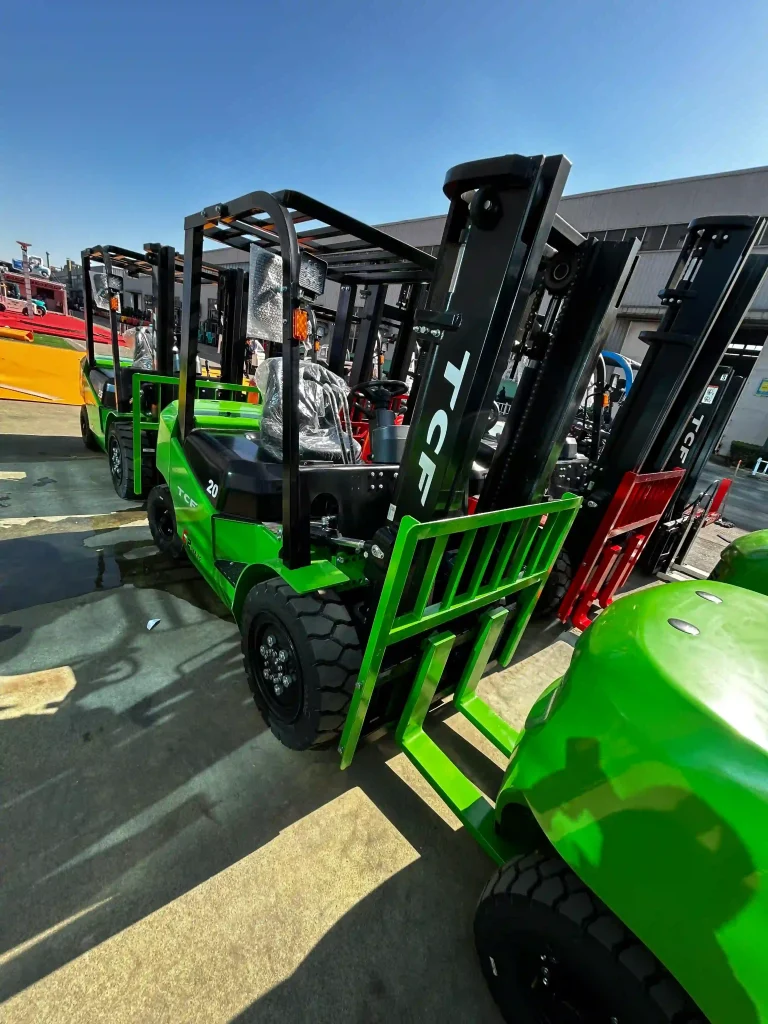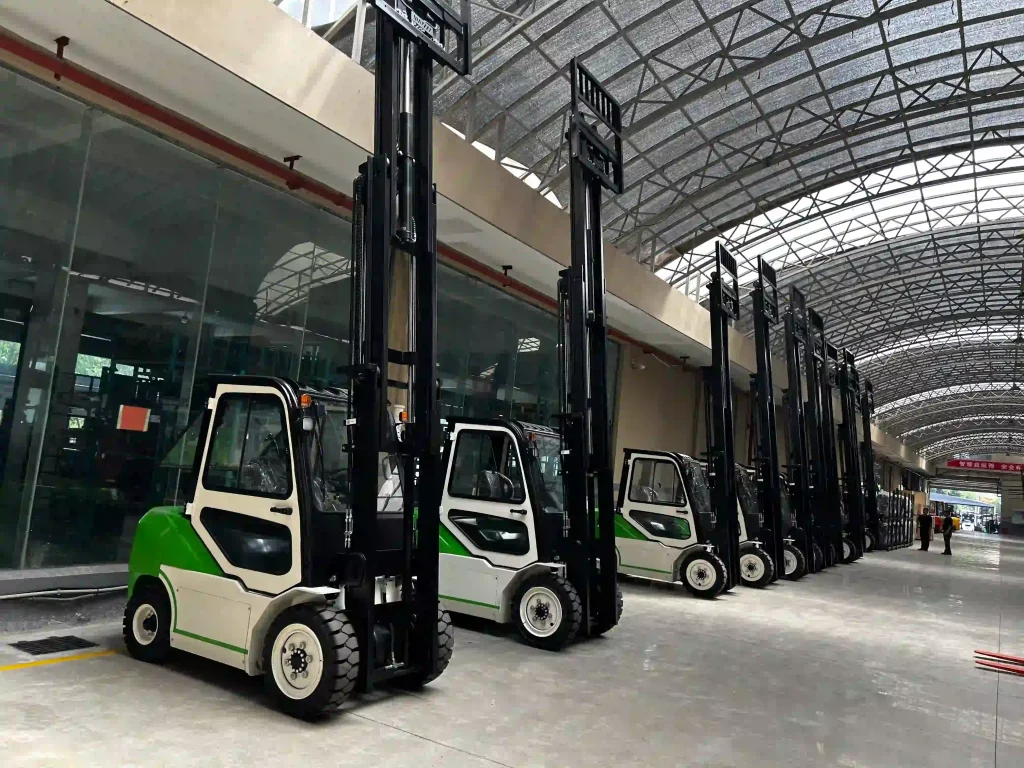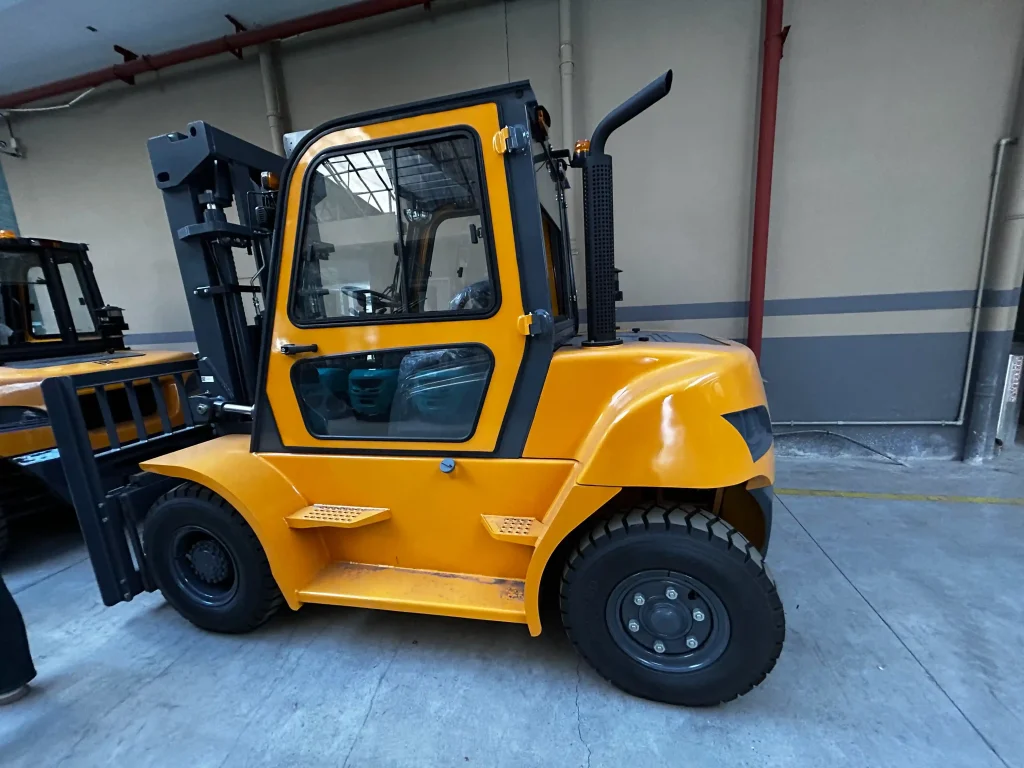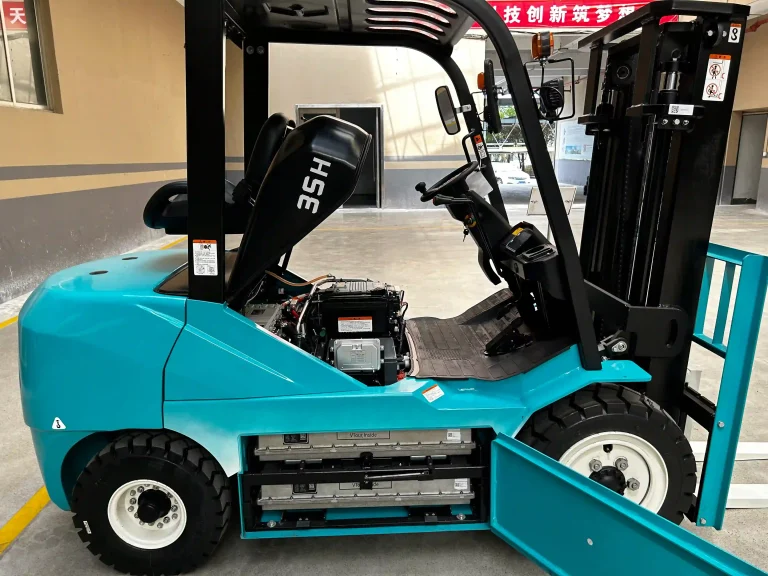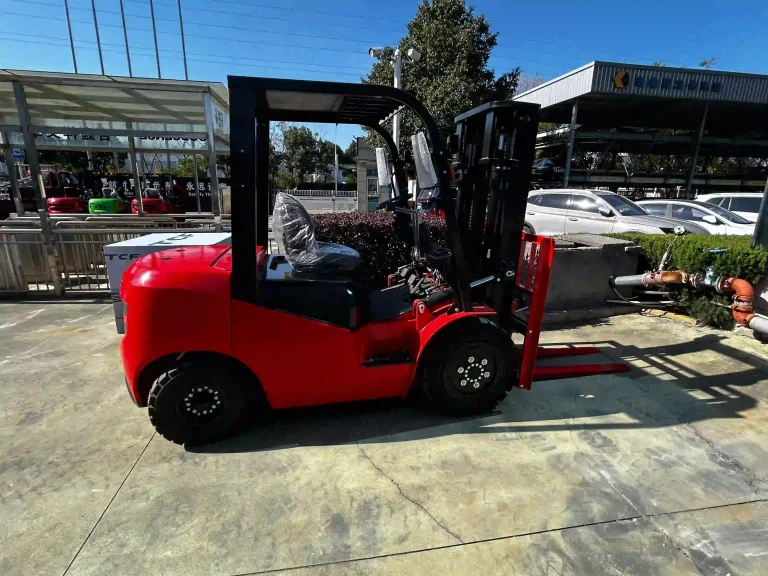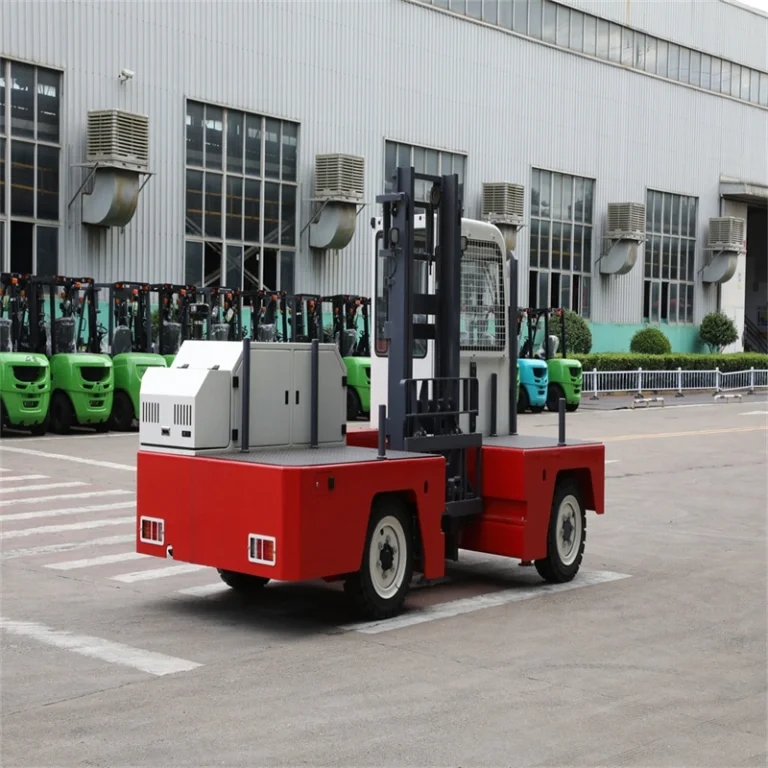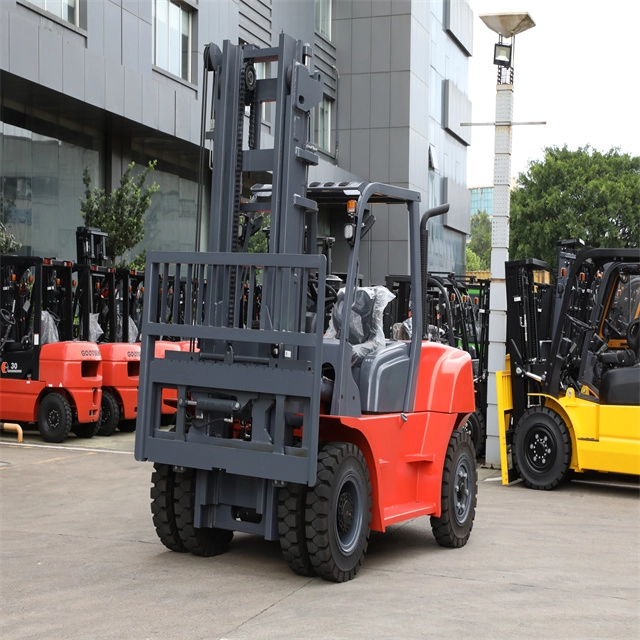Exploring the Differences Between Electric and Diesel Forklifts
Overview of Electric Forklifts
Electric Forklifts are being utilized within the industrial setting, due to their eco-friendly and operational efficiency. For instance the E series lithium battery electric forklift is available from 1 ton to 3 tons designed for better indoor applications, such as warehousing and industrial plants. Lithium-ion battery technology, that charges fast (1 to 2 hours only) and has longer battery life and low maintenance operations are some of the key attributes of forklifts. Such an attribute leads to minimal downtime. Dispenses productivity during work hours. Moreover, these forklifts have zero emissions which makes them suitable for applications or environments where every effort is taken to keep the carbon footprints as low as possible.
Overview of Diesel Forklifts
For many years, diesel forklifts have been considered crucial for industries that have heavy lifting to do—they are known for their ability to work around the clock carrying heavy loads without needing to refuel every couple of hours. However, Diesel powered forklifts have some disadvantages as greater air pollution, higher noise levels that are not suitable for indoor areas or venues that pay attention on eco-friendliness.
Advantages of Choosing Electric Forklifts Over Diesel
Environmental Benefits
Electric forklifts provide environmental benefits compared to diesel ones. The 2 ton E Series forklift generates no emissions since it runs on electricity making it perfect for indoor applications or businesses that value sustainability.Furthermore, the 3 ton green high voltage lithium battery electric forklift and other electric models showcase eco friendliness with a green design that represents their commitment to sustainability efforts.
Operational Benefits
Electric powered forklifts offer a range of advantages that have established them as a top choice across various industries.
- Electric motors operate silently compared to diesel engines which helps decrease noise pollution and enhances the work environment quality.
- Electric models are more efficient in utilizing the energy from the battery to perform tasks which ultimately reduces energy usage and operational expenses.
- Reducing the cost of ownership is achievable with electric forklifts despite their initial investment being higher than diesel forklifts. The extended battery life and decreased maintenance needs contribute to making forklifts a financially sensible choice in the long run.
- Enhanced Safety Measures.Forklift models like the 3ton-3.5 ton white electric forklift with voltage lithium battery feature electronic stability control and reduced speed when turning corners to improve safety during operations and prevent rollback incidents when navigating slopes.
Limitations of Electric Forklifts Compared to Diesel
Power and Performance Considerations
Although electric forklifts perform well in aspects they might face constraints in terms of power output when compared to diesel counterparts. Diesel engines offer torque levels that can be beneficial for demanding tasks or challenging landscapes that require extra power.
Electric forklift models, such as the 8 ton to 16 ton lithium battery powered ones can handle lifting tasks well but they might not perform as consistently as diesel engines in extreme situations when it comes to power delivery.
Cost Implications
The original cost of forklifts is usually more than diesel trucks because they use advanced battery technology like lithium ion systems like the 3 wheel electric forklift models like the 1.6 ton-2 ton i series units which are also well-liked for their green technologies with zero emissions and less noise ideal for indoor areas.
Lastly in deciding between diesel and forklifts, it is necessary to take into account the particular operating demands aside from the cost effect in the future, as well as incorporating the green washing requirements that come with the use condition of each.
Factors to Consider When Choosing Between Electric and Diesel Forklifts
When choosing between diesel forklifts for your operations needs various factors need to be considered to determine the most suitable option.
Assessing Your Operational Needs
Electric forklifts like the 1 ton to 3 ton E series lithium battery electric forklifts are perfect for use because they run quietly and produce no emissions.These models are especially helpful in settings where reducing noise and maintaining air quality are key concerns.
When it comes to using forklifts in rugged terrain situations diesel forklifts could be a better choice because of their strong power performance and capability to manage heavy loads for extended periods without needing frequent refills.
Evaluating Long-Term Cost Effectiveness
Considering the long-term expenses is crucial when deciding between diesel forklifts. The upfront cost of electric models may be higher but they tend to be more economical in the long run. For instance, the 3-ton green electric forklift with high voltage lithium battery comes with lower operating costs and decreased maintenance requirements and a longer battery lifespan in contrast to diesel options.
Electric lift trucks also gain advantages from functions like braking that captures energy when slowing down and sends it back to the battery to improve energy efficiency and cut down on operating costs.
JinChengYu: A Trusted Provider of Material Handling Solutions
When it comes to material handling solutions in the sector, JinChengYu is known for its dependable offerings that cater to a wide array of needs.
Diverse Range of Products
JinChengYu forklifts are models like the 3 ton and 3.5 ton E series electric forklift with lithium batteries recognized for their energy efficiency and minimal upkeep needs. Moreover, they provide heavy duty choices, like the 8 ton 10 ton 12 ton and 16 ton lithium battery forklifts tailored for robust industrial settings that demand substantial lifting capabilities.
These items come with state of the art technologies such as lithium ion batteries that offer excellent power performance with speedy charging capabilities and extended operational lifespans. Moreover JinChengYu forklifts are equipped with a range of safety features including stability control, automatic speed reduction when turning corners and warning systems for overloading situations.
FAQ
Q: What advantages does the environment gain from the utilization of forklifts?
A: Electric forklifts are the best for use or green operations since they produce nothing at all! The 2-ton E Series forklift is among those since it runs on electricity without emitting any toxic emissions into the air.
Q: What are the differences in maintenance needs between forklifts and diesel forklifts?
A: Electric forklifts need to be maintained because they contain fewer moving parts than diesel-fueled models with combustion engines. Lithium-ion batteries for forklifts need no maintenance and are time-saving in nature, like watering or cleaning, which lead acid batteries require.
Q: Are there any restrictions or drawbacks when utilizing forklifts?
A: Although electric forklifts also have their own strength and superiority compared to diesel forklifts when it comes to power output they may not be as potent as diesel motors that are best known for torque capacity especially for uses requiring added power such as heavy duty uses or harsh ground conditions.

